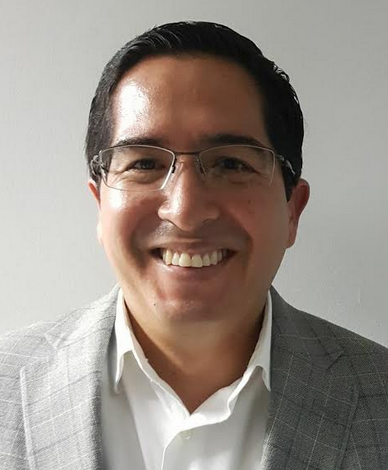Expats should know the laws of Ecuador: Culture shock can cost you big money or land you in jail
By Fernando Pages Ruiz
In the United States, we live under a host of consumer protections and seemingly inalienable rights that can feel as universal as the air we breathe.

Dr. Ruben Moran Castro
Nothing makes you realize you’re no longer in Kansas like running into legal difficulties abroad.
I should know.
Four years ago, I came to do business in Ecuador and have had my share of legal challenges, from realizing bank deposits are not FDIC insured, to discovering my property could be expropriated without notice or compensation.
Fortunately, I also found very good lawyers, who not only helped resolve my problems, but provided an eye-opening education in cross-cultural legalities.
One of those lawyers, Dr. Ruben Moran Castro, has become a friend and trusted advisor. I asked him to help our readers with a primer on the Ecuadorian legal system, and what foreigners should know to avoid trouble.
My Lawyer
Dr. Moran earned a Master’s degree in Financial Services Law from the Chicago-Kent College of Law, at the Illinois Institute of Technology. He also practiced in the United States as a personal injury attorney, with the law firm of DiBella & DiBella.
In Ecuador, Dr. Moran obtained his Ph.D. from the Universidad Católica de Santiago de Guayaquil and has enjoyed a storied career as both a private lawyer for foreign companies navigating the complexities of Ecuadorian investment, and a government lawyer for several ministries and agencies, including the Corporación Financiera Nacional (central bank), Aduana (customs), and the Ministerio de Comercio Exterior (commerce secretary).
Having lived both legal systems firsthand, practicing two years in the United States, and 15 years in Ecuador, Dr. Moran is uniquely qualified, and sensitive to the subtle, yet significant differences in the two contrasting legal environments.
So, I started by asking him how his formative experience in the United States influenced his work here in Ecuador.
My life and work experience in the U.S. helped me to understand the American culture, which I didn’t understand at all at first. When doing business in the U.S., one learns precision and punctuality. I would say it goes beyond the legal to the deeply cultural. Americans are very clear on their expectations. Today I appreciate a foreigner’s needs, and no longer consider them pushy.
What are some of the basic differences in law between the judicial systems applied in the U.S. and Ecuador?
The legal system in the United States comes from the British common law, which relies on jurisprudence and common sense. Jurors adjudicate, and base their decisions on fairness and common social standards. In Ecuador, we follow the Roman system of Civil Law, or Statutory law. Our laws are written by the government, and judges apply them but have less leeway to interpret the law.

Be especially careful if you buy land outside of cities.
In general terms, it’s good to have everything written down because you have a concrete basis of knowledge and legality. There´s less uncertainty in legal results. But when there is no written law, or laws are vague, and it does happen, it means you suddenly have no solution — a very awkward position. The contract, however written, prevails over common sense.
Here, it’s strictly according to the book. Your lawyer must specialize in whatever problem you’re dealing with.
Does the same hold true for criminal law?
In the penal system, laws are applied in a narrow and precise manner. When a statutory law is broken, the government will have a specific punishment that is in proportion to the nature of the crime.
Unlike in the U.S., when it’s just a personal offense, such as your friend gives you a black eye, then it´s a private affair. The police won’t help you at all, and you must hire a lawyer if you want to pursue a legal remedy.
Rape and murder, these are different. These are public offenses that go against the society. Nonetheless, you may need a lawyer if you want justice done.
Could you provide a practical example of how these differences may surprise and impact a U.S. or Canadian expat in a practical sense?
For one, we don´t use bail to assure the accused shows up to trial, so if you become even a suspect, you may go straight to jail, as a preventive measure.
Because we have written laws, the authorities assume you know them. It´s very important to get legal advice, since not knowing the laws won’t help you avoid legal consequences.
For example, I had a client lose a significant amount of money in a failed financial institution. He assumed the same protections existed in Ecuador that exist in the United States. Had he come for advice sooner, I could have helped him avoid the problem entirely, and he would have avoided losing a lot of money. Caveat emptor (buyer beware) applies in every instance.
This need to know the law, rather than relying on Anglo-intuition about your rights, is also one good reason to establish a positive relation with the authorities you deal with in any transaction, so that they will be inclined to advise you broadly, and help you avoid pitfalls.
Always remember that in our culture, squeaky wheals don’t necessarily get greased. Authorities resent a pejorative or demanding attitude.
Do laws change from province to province, as they do from state to state in the U.S.?
No. There´s no significant differences between provincial and federal laws, it’s all the same legal system. Except in one area. Local municipalities have a lot of power over land use, and the rules can change according to the political party that assumes power and even the mayor´s mood.
For example, a retiree from the U.S. called to say he had given a builder a deposit to build his home. The builder obtained a building permit, but suddenly this gentleman learned that the canton (county) planned to expropriate his land for a soccer field. Since the builder had obtained the permit, the builder would not return the deposit.
Even worst, the municipality may not asses his land for as much as he paid. He may not get all his money back.
It’s important to do extensive local research before you buy land, and to declare the actual value you paid for your land and pay the taxes due.
Property in small communities and rural areas often come with clouded title (dubious ownership). You may buy and then discover you have an invalid title. In the big towns this happens less. Hence folks have more issues in the dreamy beach towns, where the title records are not as good. There’s no online system. The research must be done in person at city hall. It´s time consuming, like the old title research and abstract system in the U.S.
Is there an Ecuadorian equivalent to the Small Claims Court in the U.S., to resolve minor economic disputes?
Yes, there is a new “Summary Procedure” for civil disputes; it´s called the “Procedimineto Monitorio” for disputes under $20,000. It´s expedited, but you do need a lawyer. You cannot represent yourself in Ecuador.
What about arbitration clauses in contracts, can this help expedite contract and business conflict resolution?
Arbitration through the chamber of commerce works very well. We have nearly 20 years of experience with this, and I recommend adding an arbitration clause to any contract. It may be costly, in comparison to small claims in the U.S., but it´s the best conflict resolution method in Ecuador, and you will save a lot of money and time in the long run. But both parties must agree to arbitration, so it’s important to have the arbitration clause as a contract requirement.
What precautions should one take in real estate – do brokers provide listing contracts, as they do in the states, are agency rules observed?
Yes, there is a code of commerce that outlines rules for any work for commissions. It´s not as complex and complete a regulatory system as in the U.S., but it certainly establishes fiduciary agency. Of note, it does not include exclusivity, so you can list with seven brokers and whoever sells your property gets paid. All listings in Ecuador are open listings.
How should an expat go about finding an effective (and honest) lawyer? Do you have a website?
There are some references you can look at, there’s a webpage, the “Sistema Informático Foro de Abogados,” where you´ll find insights on lawyers in Ecuador. You can also ask for references form friends and family.
You must find someone that specializes in your area of business, or criminal law. Generalists are not usually the best choice precisely because of the legal system that requires a lawyer to know every detail of the law in his or her area. Like medicine, if you have stomach problems, you want a gastroenterologist. If you’re doing real estate, look for a lawyer that specializes in real estate, not divorces. If you’re doing a government contract, look for a firm that specializes in government procurement. Not only will these lawyers know the law — an important consideration anywhere, and especially in a statutory system like that in Ecuador — but these specialized lawyers also have relationships that can be even more beneficial than the law itself.
_____________________
Dr. Moran can be reached at Iuris Consult in Guayaquil, at rubenmorancastro@gmail.com





















